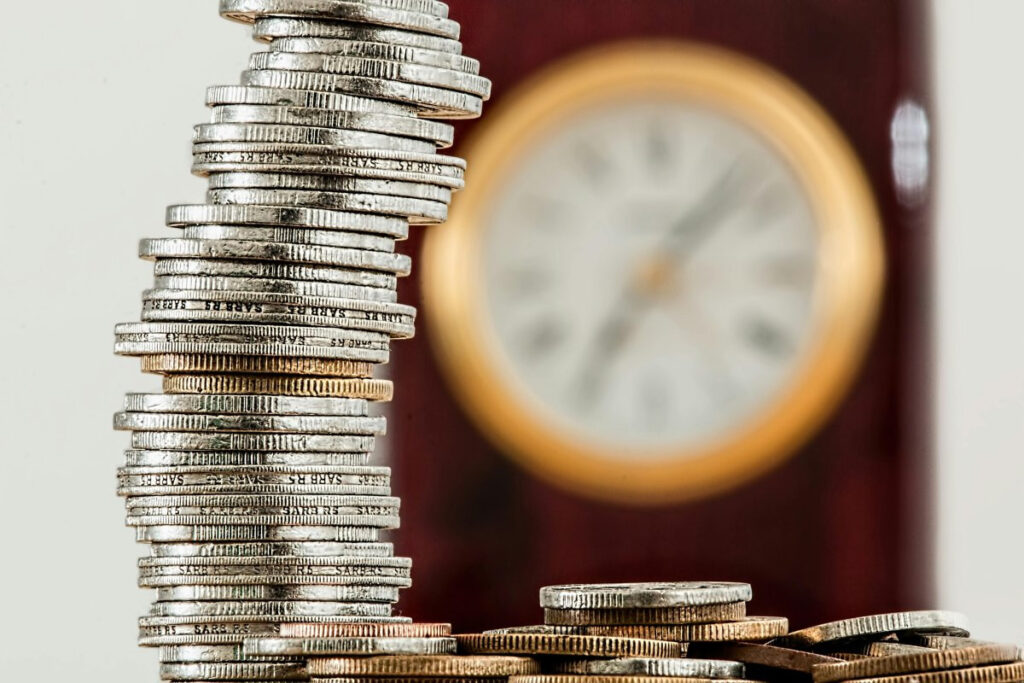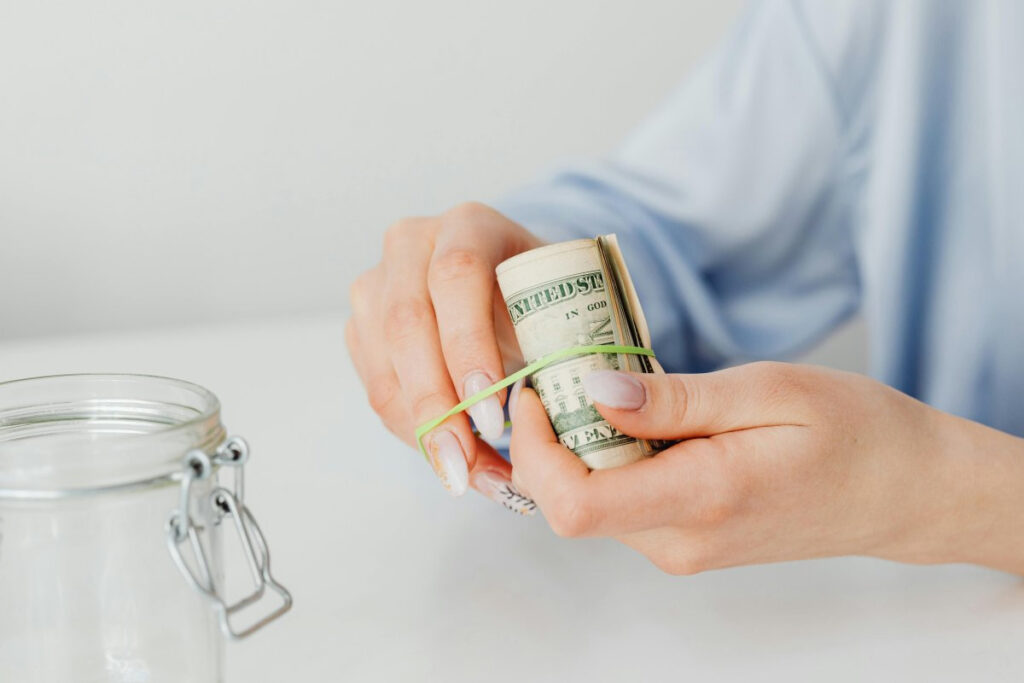
Deciding whether to save or pay off debt first can feel really stressful. It affects how safe you feel, how quickly you reach your goals, and how much worry you carry every day.
Statistics also show that about 60% of adults say money issues cause them stress.
36% of Americans have more credit card debt than emergency savings, and 27% have no emergency savings at all.
That means many people are either stuck in debt or living without a safety net. So, what’s the smarter move: saving first or paying off debt? In this post, I’ll explain both sides and offer simple, practical tips to help you choose the option that works best for you.
Key Takeaways
- Before deciding to pay off debt or save, consider your interest rates, income, job security, and financial goals.
- There’s no single right answer to whether you should pay off debt or save first because they solve two different problems.
- Paying off debt helps you stop losing money to interest. Saving enables you to avoid falling back into debt when life happens.
What Are the Factors to Consider Before Deciding if You Should Save or Pay Off Debt?
Before you decide whether to save or pay off debt, it helps to look at your overall financial picture. The right choice often depends on a few key factors, such as:
1. Interest Rates

The interest rate on your debt plays a huge role. If you’re paying 20% on a credit card, it doesn’t make sense to put extra money into a savings account that only earns 4%.
In this case, paying off debt should be the priority. But if you’re dealing with low-interest debt, such as a student loan at 4% or a mortgage at 3%, saving might make more sense.
The money you put into a retirement service or investment account could grow faster than the interest on your debt.
2. Emergency Preparedness
Without an emergency fund, even a small surprise expense like a broken fridge or a flat tire could push you further into debt.
This is why many financial experts recommend saving at least $1,000 before aggressively paying down debt. It acts as a shield, keeping you from sliding backward.
3. Income and Job Stability
If you have a steady paycheck, you might feel safer putting extra money toward debt repayment.
But if your job is uncertain, or your income is irregular, saving comes first. Having cash on hand gives you breathing room if your paycheck suddenly stops.
4. Financial Goals

Your long-term financial goals matter, too. If you plan to buy a house in a few years, you’ll need to build savings for a down payment.
If your goal is to retire early, investing in a retirement service like a 401(k) or IRA may take priority. But if your top goal is to be debt-free, then repayment becomes the focus.
Why Saving First Might Be Better
1. Unexpected Emergencies
An emergency fund is your financial safety net. Without it, you may fall deeper into debt when life throws surprises at you.
Experts suggest starting with $1,000 in savings, then building up to 3 to 6 months of living expenses.
For example, imagine you have $3,000 in credit card debt and no savings. If your car breaks down tomorrow and costs $600 to repair, you’d have no choice but to add more to your card.
That’s why even a small emergency fund is essential before focusing entirely on debt repayment.
2. Retirement and Investments
Another reason saving matters is retirement. The earlier you contribute to a retirement service, the more time your money has to grow through compound interest.
Even while paying debt, setting aside just 5 to 10% of your income for retirement can make a huge difference years down the line.
You can use the 50/30/20 budget rule to determine exactly what percentage to set aside.
Why Paying Off Debt First Might Be Better
1. The Danger of High-Interest Debt
High-interest debt is one of the biggest threats to financial stability. Credit cards often charge over 20% APR, which grows much faster than most savings accounts.
If you’re paying this kind of interest, debt repayment should come before aggressive saving.
For instance, imagine you have $5,000 in credit card debt at 22% APR. That’s over $1,000 in interest in just one year.
By paying this off, you save more money than you would earn from most investments.
2. Debt Repayment Boosts Credit Score
Paying off debt also improves your credit score. Lower balances reduce your credit utilization ratio, which makes up about 30% of your score.
A better credit score means lower interest rates when you borrow for major purchases, like a mortgage or car loan.
Finding the Right Balance: How to Save or Pay Off Debt Smartly
The answer to the question “Should I save or pay off debt?” isn’t always black-and-white. Often, the smartest move is to do both.
Save a little while paying down debt strategically. Here’s how you can balance both effectively.
1. Build a Starter Emergency Fund

Before focusing heavily on debt repayment, set aside a starter emergency fund of at least $1,000.
This acts as a safety net in case unexpected expenses arise, such as car repairs, medical bills, or sudden home repairs. Without it, even small surprises can push you deeper into debt.
For example, if you have a $400 car repair and no emergency fund, you might need to use your credit card, which adds high-interest debt.
Starting with a small emergency fund gives you breathing room while you figure out your debt strategy. Even contributing small amounts weekly can help you build this fund faster than you think.
2. Tackle High-Interest Debt
Once you have a basic emergency fund, focus on paying off high-interest debt first. This includes credit cards, payday loans, and personal loans with high APRs.
High-interest debt grows faster than almost any savings account, meaning it’s costing you money every day you don’t pay it off.
You can choose between two popular strategies:
- Debt Snowball: Pay off your smallest debts first. This gives you quick wins and motivation to keep going.
- Debt Avalanche: Pay off debts with the highest interest rate first. This saves you the most money on interest over time.
For instance, imagine you have $3,000 in a credit card at 22% interest and $1,500 in a personal loan at 10%.
Using the debt avalanche method, you’d pay the $3,000 credit card first, because it costs you the most.
Using the debt snowball, you’d pay the $1,500 loan first to get a psychological boost from eliminating a balance.
3. Save While Paying Off Debt

Once high-interest debt is reduced, split the extra money between debt repayment and savings. You can continue building your emergency fund while contributing to a retirement service.
This approach allows you to protect yourself while keeping debt levels manageable. For instance, setting aside $50 per week toward an emergency fund may not feel like much now, but in five years it can add up significantly.
A helpful budgeting tip is to find a budgeting method that works, like the 70/20/10 rule.
4. Managing Low-Interest Debt
Low-interest debt, such as student loans or mortgages, can usually be paid off slowly while saving or investing.
For example, if a student loan has a 4% interest rate and your retirement account earns 7%, putting extra money into your retirement account may be smarter.
Always make minimum payments to avoid penalties and maintain your credit score.
This strategy allows you to grow savings while responsibly managing debt, balancing short-term security with long-term financial goals.
Final Thoughts
Deciding whether to save or pay off debt is a challenge that many people face. The best approach is to assess your situation and create a plan that works for you.
Start by building a small emergency fund to protect yourself from unexpected expenses. Then focus on reducing high-interest debt while gradually saving for the future.
Managing low-interest debt can be done slowly while contributing to a retirement service or investing in other financial goals.
By balancing saving and debt repayment, you can create security today and build a stronger financial future.
Frequently Asked Questions
1. Can I Save and Pay off Debt at the Same Time?
Yes. A balanced plan ensures you’re building security while reducing your debt.
2. How Does the 50/30/20 Rule Help?
It’s a simple budgeting tip that ensures you set aside 20% of your income for savings and debt repayment.
3. What is the Smartest Way to Pay Debt?
The smartest way to pay off debt is to focus on high-interest debt first, using the debt avalanche method while making minimum payments on other debts.
4. How Much Should I Save in an Emergency Fund Before Paying Debt?
Aim for at least $1,000 to start. Eventually, try to build 3 to 6 months of living expenses.